
Two students sit at a conference table with papers and a folder on it. The back of the photograph is stamped with: "Photograph By Freeman." (c.1980) Image found in the University Archives, available online via our Digital Collections.
The University Libraries’ Career Collection is a treasure trove of valuable resources for professionals at any stage of their careers, from networking and interviewing to pursuing leadership positions. In this list, experts from the Libraries and the Career and Professional Development Center (CPDC) recommend ten books that focus on using creativity and thinking to set yourself up for success in your career.
Visual Thinking: The Hidden Gifts of People Who Think in Pictures, Patterns, and Abstractions
Grandin, Temple; Lerner, Betsy (2022)
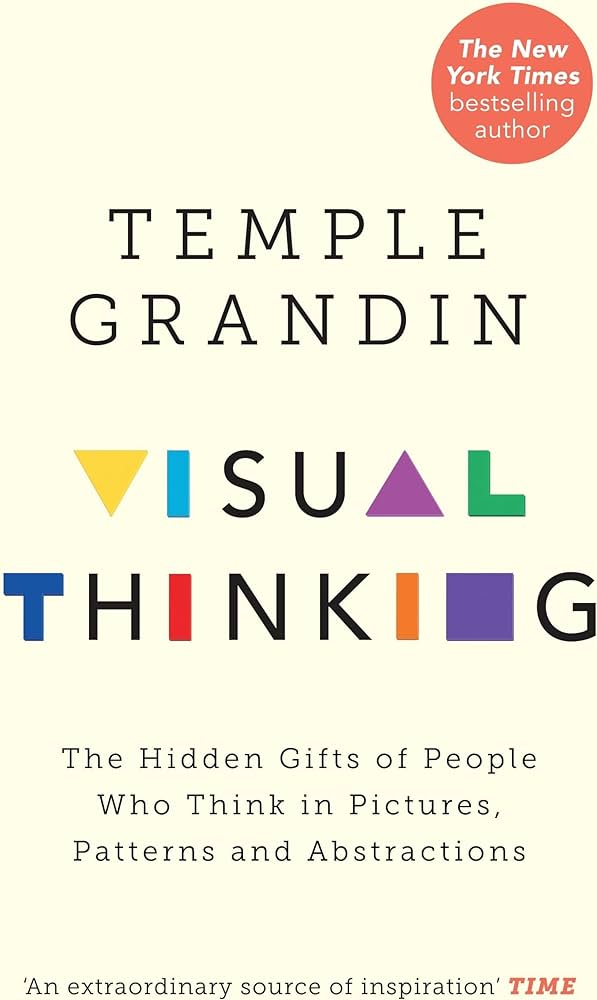 A quarter of a century after her first book, "Thinking in Pictures," forever changed how the world understood autism, Temple Grandin-the "anthropologist from Mars," as Oliver Sacks dubbed her-transforms our understanding of the different ways our brains are wired. Visual thinkers constitute a far greater proportion of the population than previously understood, she reveals, and a more varied one, from the purest "object visualizers" like Grandin herself, with their intuitive knack for engineering and problem-solving, to "visual spatials"-the abstract, mathematical thinkers who excel in pattern recognition and systemic thinking.
A quarter of a century after her first book, "Thinking in Pictures," forever changed how the world understood autism, Temple Grandin-the "anthropologist from Mars," as Oliver Sacks dubbed her-transforms our understanding of the different ways our brains are wired. Visual thinkers constitute a far greater proportion of the population than previously understood, she reveals, and a more varied one, from the purest "object visualizers" like Grandin herself, with their intuitive knack for engineering and problem-solving, to "visual spatials"-the abstract, mathematical thinkers who excel in pattern recognition and systemic thinking.
With her genius for demystifying science, Grandin draws on cutting-edge research to take us inside visual thinking and its intuitive affinities for design, innovation, and problem-solving. She also makes us aware of how a world geared to the highly verbal screens out visual thinkers from an early age. Rather than continuing to waste their singular gifts, driving a collective loss in productivity and competitiveness, Grandin proposes new approaches to educating, parenting, employing, and collaborating with visual thinkers. In a highly competitive world, this important book helps us to see, we need every mind on board. - Publisher's Description
Request this Title
Think Faster, Talk Smarter: How to Speak Successfully When You're Put on the Spot
Abrahams, Matt (2023)
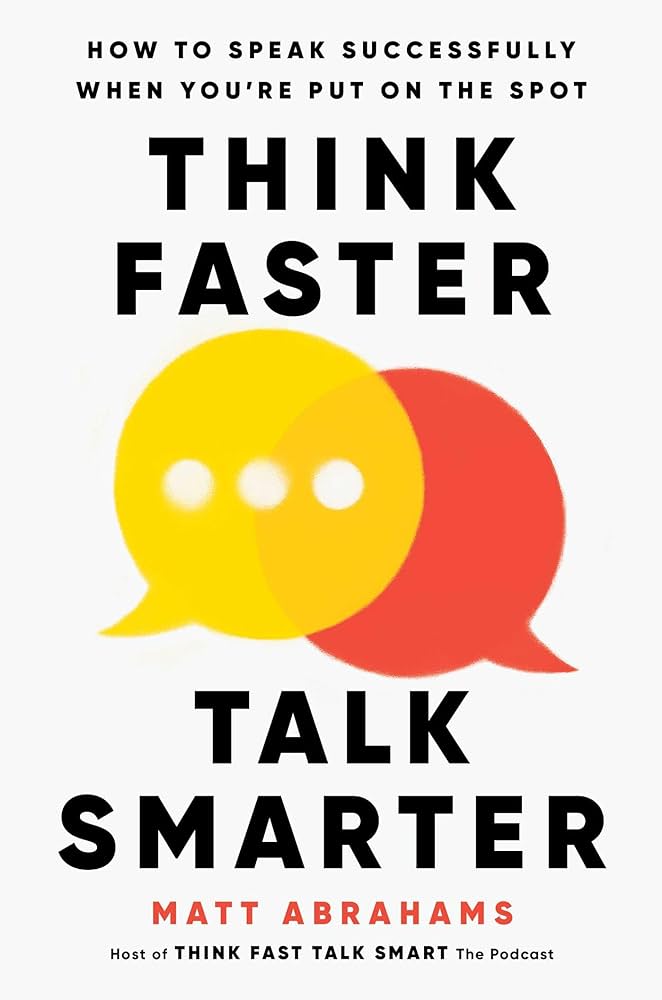 Many of us dread having to convey our ideas to others, often feeling ill-equipped, anxious, and awkward. Public speaking experts help by focusing on planned communication experiences such as slide presentations, pitches, or formal talks. Yet, most of our professional and personal communication occurs in spontaneous situations that creep up on us and all too often leave us flustered and stumbling for words. How can we rise to the occasion and shine when we’re put on the spot?
Many of us dread having to convey our ideas to others, often feeling ill-equipped, anxious, and awkward. Public speaking experts help by focusing on planned communication experiences such as slide presentations, pitches, or formal talks. Yet, most of our professional and personal communication occurs in spontaneous situations that creep up on us and all too often leave us flustered and stumbling for words. How can we rise to the occasion and shine when we’re put on the spot?
In "Think Faster, Talk Smarter," Stanford lecturer, podcast host, and communication expert Matt Abrahams provides tangible, actionable skills to help even the most anxious of speakers succeed when speaking spontaneously. Abrahams provides science-based strategies for managing anxiety, responding to the mood of the room, and making content concise, relevant, compelling, and memorable. Drawing on stories from his clients and students, he offers best practices for navigating Q&A sessions, shining in job interviews, providing effective feedback, making small talk, fixing faux pas, persuading others, and handling other impromptu speaking tasks. Whether it’s a prospective client asking you an unexpected question during a meeting or all eyes turning to you at a dinner party, you’ll know how to navigate the situation like a pro and bring out your very best. "Think Faster, Talk Smarter" is an accessible guide to communication that will help you master new techniques in no time. - Publisher's Description
Request this Title
Made to Stick: Why Some Ideas Survive and Others Die
Heath, Chip; Heath, Dan (2007)
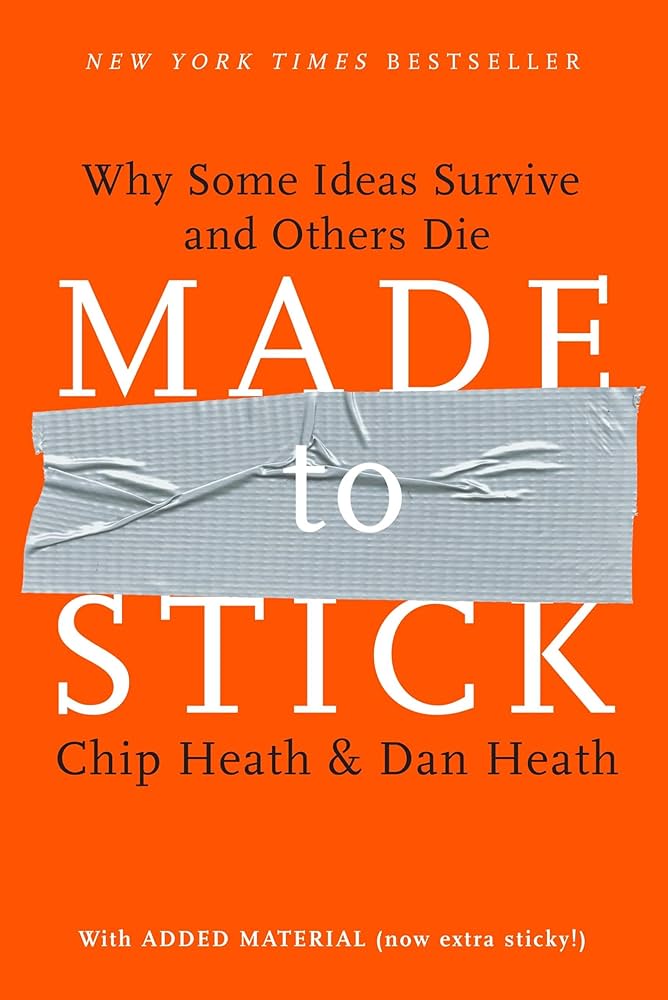 Urban legends, conspiracy theories, and bogus public-health scares circulate effortlessly. Meanwhile, people with important ideas--business people, teachers, politicians, journalists, and others--struggle to make their ideas "stick." Why do some ideas thrive while others die? And how do we improve the chances of worthy ideas? Educators and idea collectors Chip and Dan Heath reveal the anatomy of ideas that stick and explain ways to make ideas stickier, such as applying the "human scale principle," using the "Velcro Theory of Memory," and creating "curiosity gaps."
Urban legends, conspiracy theories, and bogus public-health scares circulate effortlessly. Meanwhile, people with important ideas--business people, teachers, politicians, journalists, and others--struggle to make their ideas "stick." Why do some ideas thrive while others die? And how do we improve the chances of worthy ideas? Educators and idea collectors Chip and Dan Heath reveal the anatomy of ideas that stick and explain ways to make ideas stickier, such as applying the "human scale principle," using the "Velcro Theory of Memory," and creating "curiosity gaps."
In this fast-paced tour of success stories (and failures), we discover that sticky messages of all kinds--from the infamous "kidney theft ring" hoax to a coach's lessons on sportsmanship to a vision for a new product at Sony--draw their power from the same six traits. This book that will transform the way you communicate ideas. - Publisher's Description
Request this Title
Creative Confidence: Unleashing the Creative Potential Within Us All
Kelley, Tom; Kelley, David (2013)
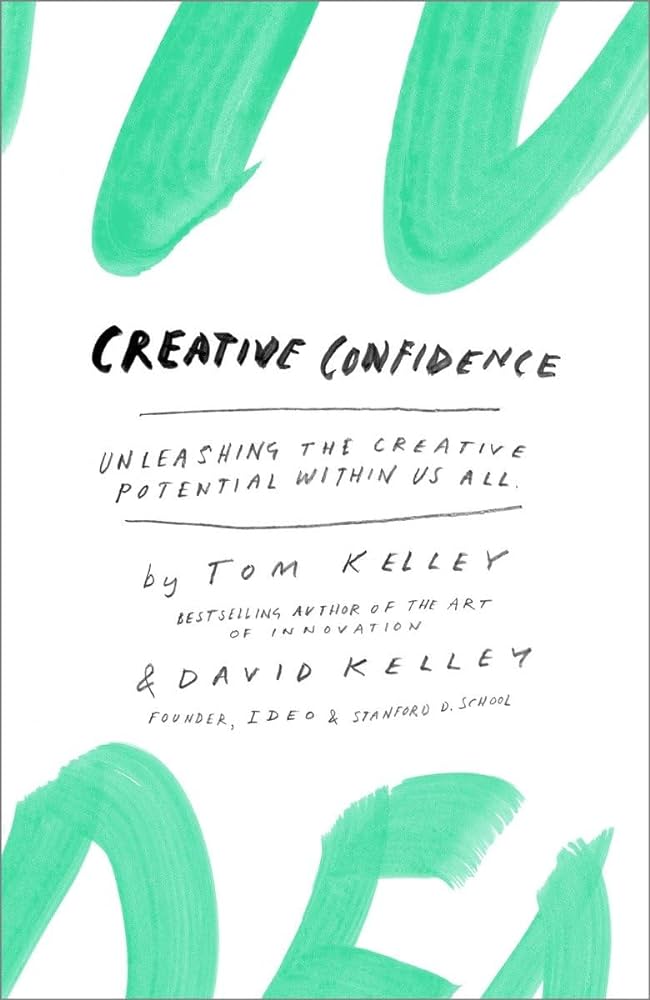 IDEO founder and Stanford d.school creator David Kelley and his brother Tom Kelley, IDEO partner and the author of the bestselling "The Art of Innovation," have written a powerful and compelling book on unleashing the creativity that lies within each and every one of us. Too often, companies and individuals assume that creativity and innovation are the domain of the "creative types." But two of the leading experts in innovation, design, and creativity on the planet show us that each and every one of us is creative.
IDEO founder and Stanford d.school creator David Kelley and his brother Tom Kelley, IDEO partner and the author of the bestselling "The Art of Innovation," have written a powerful and compelling book on unleashing the creativity that lies within each and every one of us. Too often, companies and individuals assume that creativity and innovation are the domain of the "creative types." But two of the leading experts in innovation, design, and creativity on the planet show us that each and every one of us is creative.
In an incredibly entertaining and inspiring narrative that draws on countless stories from their work at IDEO and with many of the world's top companies, David and Tom Kelley identify the principles and strategies that will allow us to tap into our creative potential in our work lives, and in our personal lives, and allow us to innovate in terms of how we approach and solve problems. It is a book that will help each of us be more productive and successful in our lives and in our careers. - Publisher's Description
Request this Title
Creativity in Research: Cultivate Clarity, Be Innovative, and Make Progress in Your Research Journey
Ulibarri, Nicola; Cravens, Amanda; Svetina Nabergoj, Anja; Kernbach, Sebastian; Royalty, Adam (2019)
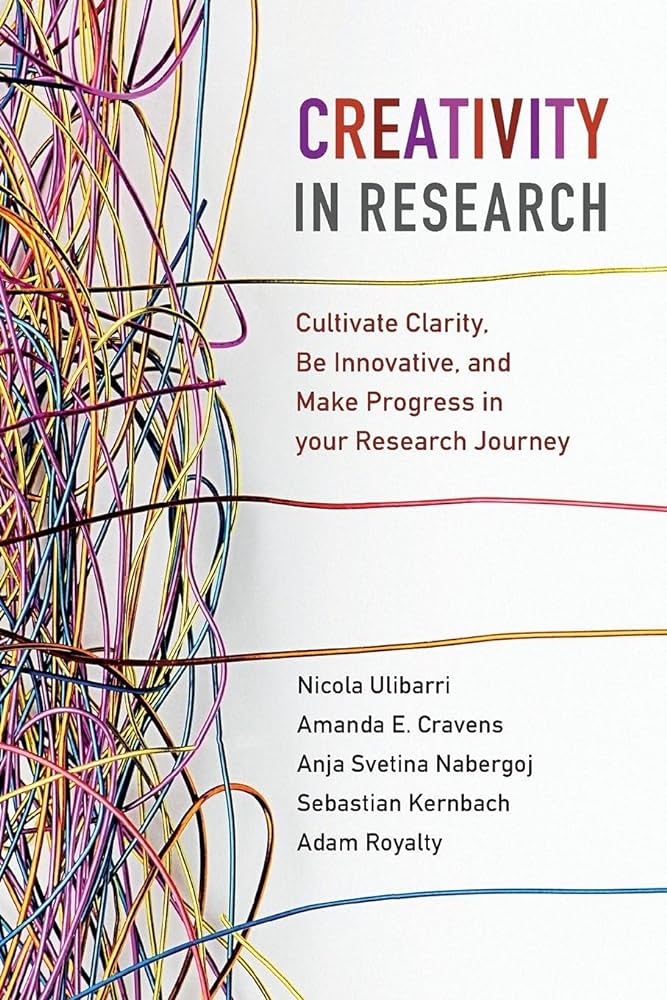 Creativity is at the heart of successful research, yet researchers are rarely taught how to manage their creative process, and modern academic life is not structured to optimize creativity. Creativity in Research provides concrete guidance on developing creativity for anyone doing or mentoring research. Based on a curriculum developed at Stanford University's Hasso Plattner Institute of Design, this book presents key abilities that underlie creative research practice through a combination of scientific literature on creative confidence, experiential exercises, and guided reflection.
Creativity is at the heart of successful research, yet researchers are rarely taught how to manage their creative process, and modern academic life is not structured to optimize creativity. Creativity in Research provides concrete guidance on developing creativity for anyone doing or mentoring research. Based on a curriculum developed at Stanford University's Hasso Plattner Institute of Design, this book presents key abilities that underlie creative research practice through a combination of scientific literature on creative confidence, experiential exercises, and guided reflection.
By focusing attention on how research happens as well as its outputs, researchers increase their ability to address research challenges and produce the outputs they care about. Simultaneously, they may also transform their emotional relationship with their work, replacing stress and a harsh inner critic with a more open and emotionally empowered attitude. - Publisher's Description
Request this Title
Thinking, Fast and Slow
Kahneman, Daniel (2013)
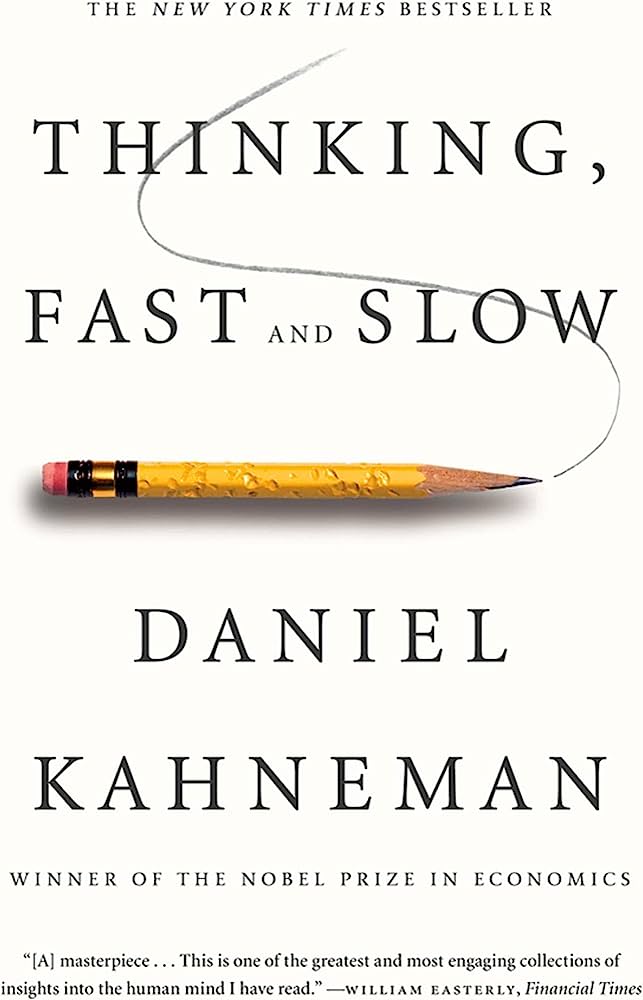 In this work the author, a recipient of the Nobel Prize in Economic Sciences for his seminal work in psychology that challenged the rational model of judgment and decision making, has brought together his many years of research and thinking in one book. He explains the two systems that drive the way we think. System 1 is fast, intuitive, and emotional; System 2 is slower, more deliberative, and more logical. He exposes the extraordinary capabilities, and also the faults and biases, of fast thinking, and reveals the pervasive influence of intuitive impressions on our thoughts and behavior. He reveals where we can and cannot trust our intuitions and how we can tap into the benefits of slow thinking. He offers practical and enlightening insights into how choices are made in both our business and our personal lives, and how we can use different techniques to guard against the mental glitches that often get us into trouble.
In this work the author, a recipient of the Nobel Prize in Economic Sciences for his seminal work in psychology that challenged the rational model of judgment and decision making, has brought together his many years of research and thinking in one book. He explains the two systems that drive the way we think. System 1 is fast, intuitive, and emotional; System 2 is slower, more deliberative, and more logical. He exposes the extraordinary capabilities, and also the faults and biases, of fast thinking, and reveals the pervasive influence of intuitive impressions on our thoughts and behavior. He reveals where we can and cannot trust our intuitions and how we can tap into the benefits of slow thinking. He offers practical and enlightening insights into how choices are made in both our business and our personal lives, and how we can use different techniques to guard against the mental glitches that often get us into trouble.
This author's work has transformed cognitive psychology and launched the new fields of behavioral economics and happiness studies. In this book, he takes us on a tour of the mind and explains the two systems that drive the way we think and the way we make choices. - Publisher's Description
Request this Title
"Yes" or "No": The Guide to Better Decisions
Johnson, Spencer (1993)
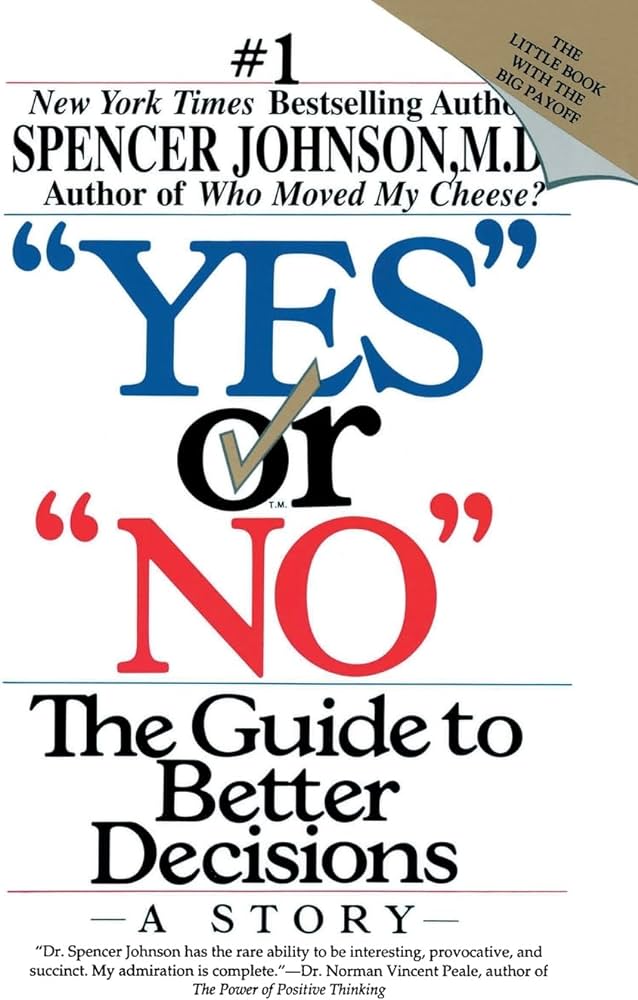 "Yes" or "No," from the #1 New York Times bestselling author Spencer Johnson, presents a brilliant and practical system anyone can use to make better decisions, soon and often -- both at work and in personal life.
"Yes" or "No," from the #1 New York Times bestselling author Spencer Johnson, presents a brilliant and practical system anyone can use to make better decisions, soon and often -- both at work and in personal life.
The "Yes" or "No" System lets focus on real needs, versus mere wants create better options see the likely consequences of choices and identify and then use our own integrity, intuition, and insight to gain peace of mind, self-confidence, and freedom from fear Managers and employees burdened by indecisiveness and frustrated with their poor decision-making skills will find solace in this guidebook from the bestselling author of "The One Minute Manager." Thoroughly tested in top US corporations, this practical system allows everyone to make better decisions. - Publisher's Description
Request this Title
The Infinite Game
Sinek, Simon (2019)
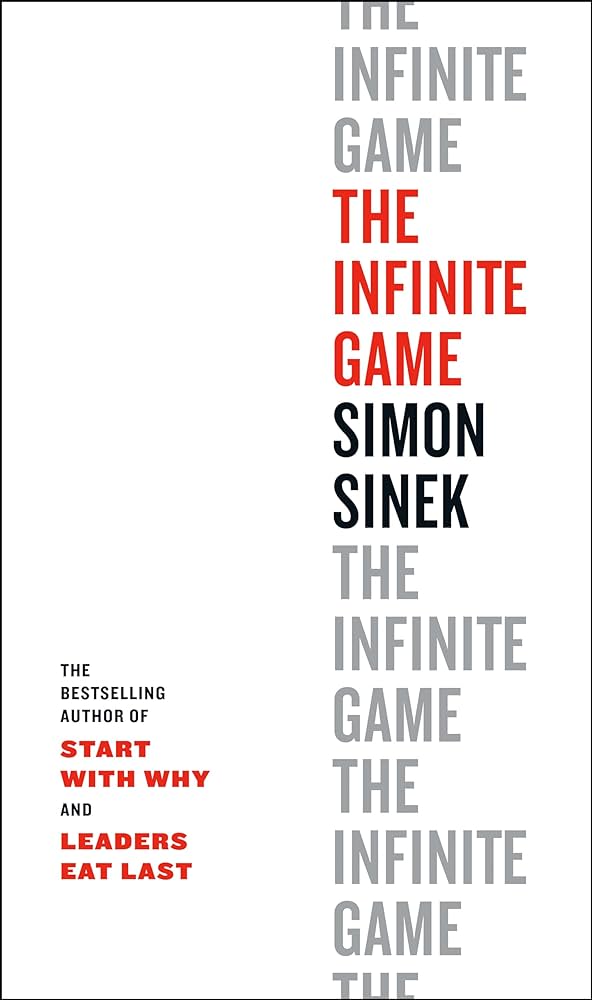 In finite games, like football or chess, the players are known, the rules are fixed, and the endpoint is clear. The winners and losers are easily identified. In infinite games, like business or politics or life itself, the players come and go, the rules are changeable, and there is no defined endpoint. There are no winners or losers in an infinite game; there is only ahead and behind. The more I started to understand the difference between finite and infinite games, the more I began to see infinite games all around us. I started to see that many of the struggles that organizations face exist simply because their leaders were playing with a finite mindset in an infinite game. These organizations tend to lag behind in innovation, discretionary effort, morale and ultimately performance.
In finite games, like football or chess, the players are known, the rules are fixed, and the endpoint is clear. The winners and losers are easily identified. In infinite games, like business or politics or life itself, the players come and go, the rules are changeable, and there is no defined endpoint. There are no winners or losers in an infinite game; there is only ahead and behind. The more I started to understand the difference between finite and infinite games, the more I began to see infinite games all around us. I started to see that many of the struggles that organizations face exist simply because their leaders were playing with a finite mindset in an infinite game. These organizations tend to lag behind in innovation, discretionary effort, morale and ultimately performance.
The leaders who embrace an infinite mindset, in stark contrast, build stronger, more innovative, more inspiring organizations. Their people trust each other and their leaders. They have the resilience to thrive in an ever-changing world, while their competitors fall by the wayside. Ultimately, they are the ones who lead the rest of us into the future. Any worthwhile undertaking starts with Why - the purpose, cause or belief that inspires us to do what we do and inspires others to join us. Good leaders know how to build Circles of Safety that promote trust and cooperation throughout their organizations. But that's not enough to help us chart a course through the unpredictable, often chaotic landscape of today's marketplace. I now believe that the ability to adopt an infinite mindset is a prerequisite for any leader who aspires to leave their organization in better shape than they found it. - Publisher's Description
Request this Title
Rituals for Virtual Meetings: Creative Ways to Engage People and Strengthen Relationships
Ozenc, Kursat; Fajardo, Glenn (2021)
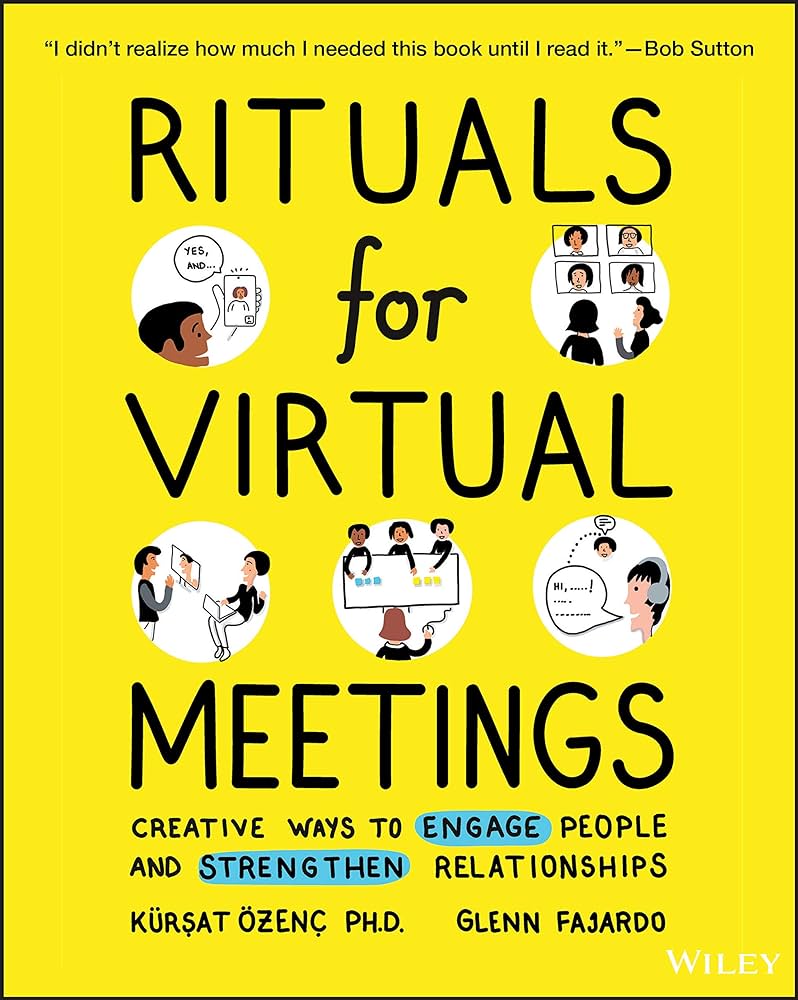 Do your virtual meetings feel like a drag? Learn how to use rituals to build trust, increase engagement, and spark creativity. We rely on virtual meetings now more than ever. However, they can often feel awkward, monotonous, and frustrating. If you're not thrilled with your virtual meetings, rituals can help your group break through to better results by providing structures that unlock freedom. With rituals, virtual meetings can be moments that are elevated and nurtured, opportunities for people to build connection and trust while accomplishing a common goal.
Do your virtual meetings feel like a drag? Learn how to use rituals to build trust, increase engagement, and spark creativity. We rely on virtual meetings now more than ever. However, they can often feel awkward, monotonous, and frustrating. If you're not thrilled with your virtual meetings, rituals can help your group break through to better results by providing structures that unlock freedom. With rituals, virtual meetings can be moments that are elevated and nurtured, opportunities for people to build connection and trust while accomplishing a common goal.
In "Rituals for Virtual Meetings: Creative Ways to Engage People and Strengthen Relationships" authors Kursat Ozenc and Glenn Fajardo show leaders, managers, and meeting organizers how to build rapport and rhythm amongst team members when everyone is not in the same physical space. Rituals for Virtual Meetings provides readers with practical, concrete steps to improve group cohesion and performance, including: * How to make virtual meetings more fluid and less awkward * How to reduce Zoom fatigue and sustain people's energy during meetings * How to facilitate better interactions with project partners, customers, and clients * How community leaders can engage members in a virtual setting * How teachers can engage students in virtual classrooms Perfect for anyone who needs to engage people in virtual settings, the book also belongs on the shelves of anyone interested in how to increase team engagement in a variety of contexts. - Publisher's Description
Request this Title
Deep Work: Rules for Focused Success in a Distracted World
Newport, Cal (2016)
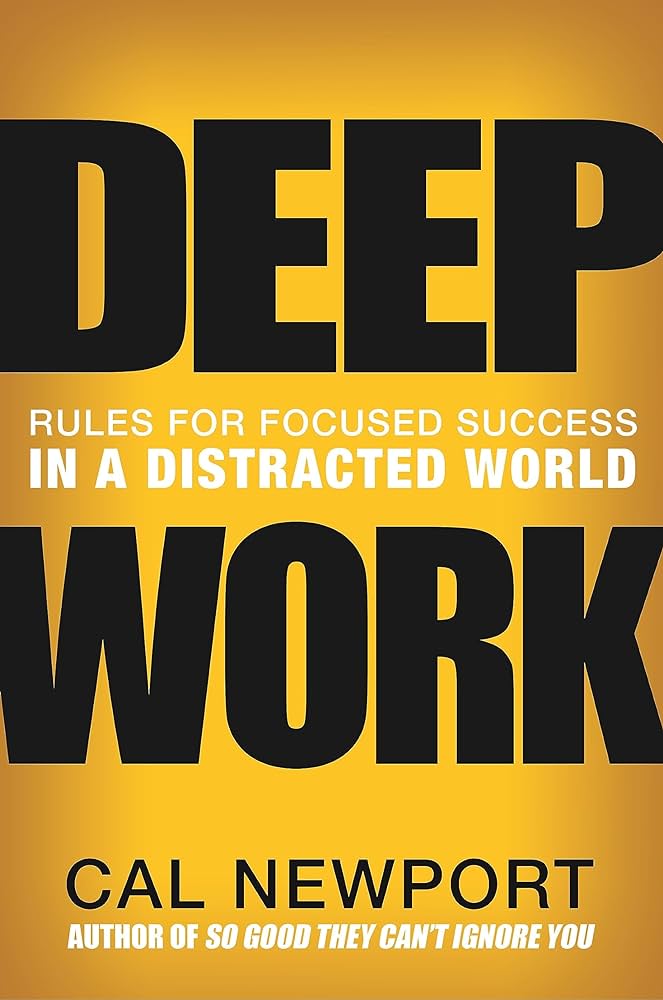 One of the most valuable skills in our economy is becoming increasingly rare. If you master this skill, you'll achieve extraordinary results. Deep work is the ability to focus without distraction on a cognitively demanding task. It's a skill that allows you to quickly master complicated information and produce better results in less time. Deep work will make you better at what you do and provide the sense of true fulfillment that comes from craftsmanship. In short, deep work is like a super power in our increasingly competitive twenty-first century economy. And yet, most people have lost the ability to go deep-spending their days instead in a frantic blur of e-mail and social media, not even realizing there's a better way.
One of the most valuable skills in our economy is becoming increasingly rare. If you master this skill, you'll achieve extraordinary results. Deep work is the ability to focus without distraction on a cognitively demanding task. It's a skill that allows you to quickly master complicated information and produce better results in less time. Deep work will make you better at what you do and provide the sense of true fulfillment that comes from craftsmanship. In short, deep work is like a super power in our increasingly competitive twenty-first century economy. And yet, most people have lost the ability to go deep-spending their days instead in a frantic blur of e-mail and social media, not even realizing there's a better way.
In "Deep Work," author and professor Cal Newport flips the narrative on impact in a connected age. Instead of arguing distraction is bad, he instead celebrates the power of its opposite. Dividing this book into two parts, he first makes the case that in almost any profession, cultivating a deep work ethic will produce massive benefits. He then presents a rigorous training regimen, presented as a series of four "rules," for transforming your mind and habits to support this skill. A mix of cultural criticism and actionable advice, DEEP WORK takes the reader on a journey through memorable stories-from Carl Jung building a stone tower in the woods to focus his mind, to a social media pioneer buying a round-trip business class ticket to Tokyo to write a book free from distraction in the air-and no-nonsense advice, such as the claim that most serious professionals should quit social media and that you should practice being bored. "Deep Work" is an indispensable guide to anyone seeking focused success in a distracted world. - Publisher's Description
Request this Title
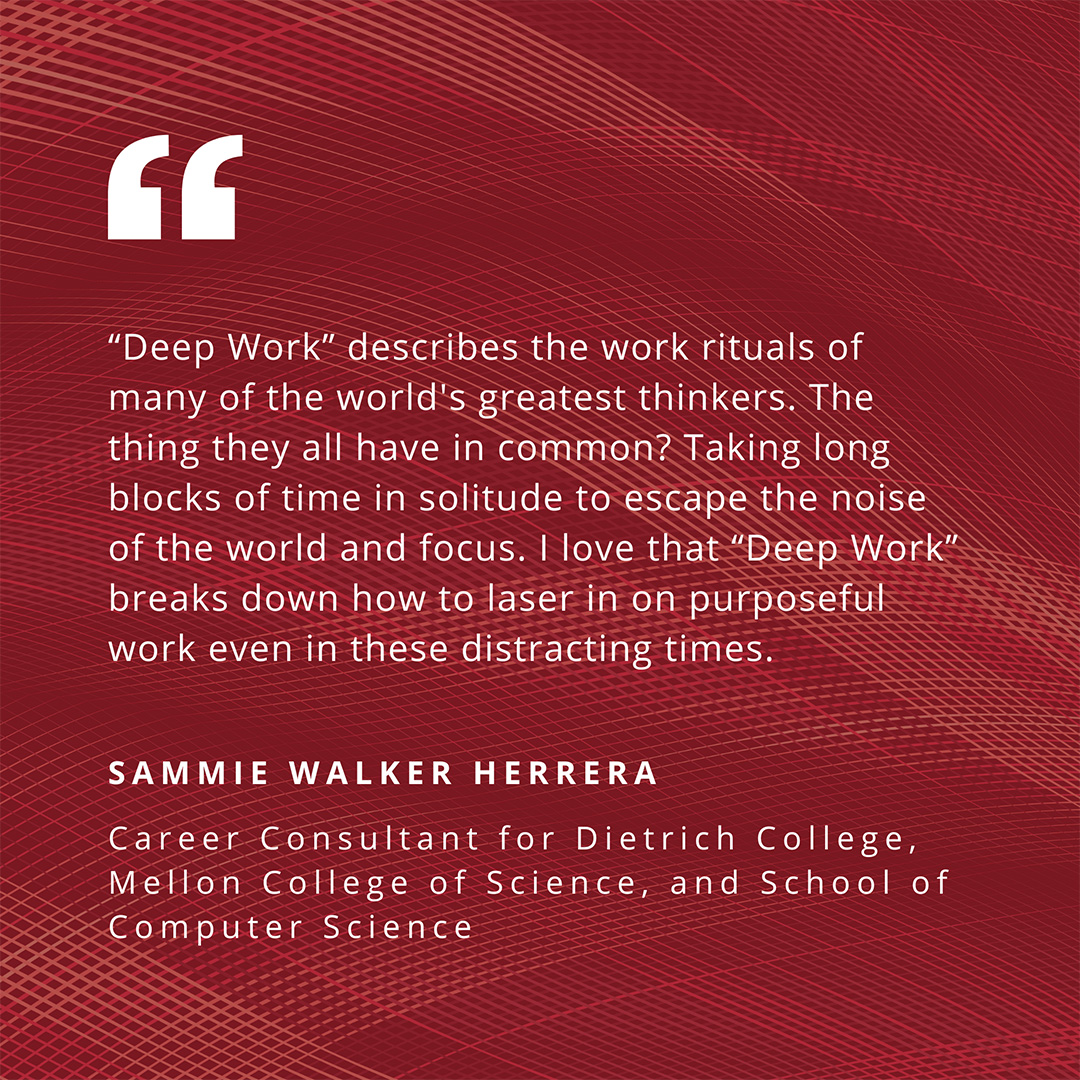
For additional information, check out the Libraries’ Career Collection resources. Physical copies of books are located on the second floor of Hunt Library, and eBooks can be found in the catalog. You can also visit the CPDC website to find additional resources, or make an appointment with a Career Consultant.
